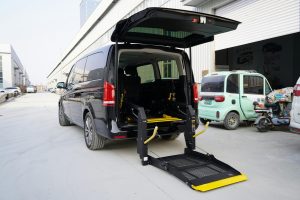Hybrid Technologies Transforming Personal Transportation Landscape
The way we get around is constantly evolving. From horse-drawn carriages to automobiles, the transportation industry has seen significant changes over the years. With growing concerns about the environment and rising fuel prices, there has been a major push towards sustainable and efficient transportation options. This has led to the emergence of hybrid technologies that are transforming the personal transportation landscape. In this article, we will explore how these innovative hybrid technologies are reshaping the way we travel and the impact they have on the environment and society.
What are Hybrid Technologies?
Before we dive into how hybrid technologies are transforming personal transportation, let’s first define what they are. Hybrid technologies are a combination of two or more power sources, typically an internal combustion engine and an electric motor. These technologies aim to reduce fuel consumption and emissions while providing the same or better performance as conventional vehicles.
The Rise of Hybrid Vehicles
It was in the late 1990s that the first mass-produced hybrid vehicle, the Toyota Prius, was introduced to the market. This marked the beginning of a shift towards more sustainable transportation options. Over the years, more and more automakers have started investing in hybrid technology, and today, we have a wide variety of hybrid vehicles available from different manufacturers.
Benefits of Hybrid Technologies
Reduced Carbon Footprint
One of the main benefits of hybrid technologies is their impact on the environment. As these vehicles use both an electric motor and an internal combustion engine, they produce significantly fewer emissions compared to traditional vehicles. This helps reduce our carbon footprint and contribute towards a greener and cleaner environment.
Improved Fuel Efficiency
Since hybrid vehicles use a combination of two sources for power, they are able to achieve better fuel efficiency. The electric motor helps to power the vehicle at low speeds, while the internal combustion engine takes over at higher speeds. This can result in significant cost savings for drivers, especially with rising fuel prices.
Longer Lifespan
Due to the nature of their technology, hybrid vehicles have a longer lifespan compared to traditional vehicles. The electric motor helps to reduce the workload on the internal combustion engine, which results in less wear and tear over time. This means that hybrid vehicles tend to have lower maintenance costs and can last longer, making them a more cost-effective option in the long run.
Incentives and Tax Benefits
Many governments around the world are offering incentives and tax benefits to encourage the use of hybrid technology. These can include tax credits, rebates, and reduced registration fees, making hybrid vehicles more affordable for consumers. This has helped to increase the demand for these vehicles and promote their adoption on a larger scale.
The Impact on Personal Transportation
Hybrid technologies are not just limited to cars. They are also being applied to other forms of personal transportation, such as buses, bicycles, and scooters. This provides a wider range of options for commuters, allowing for more flexibility and convenience in their daily travels.
Furthermore, with the rise of ride-sharing services and transportation apps, more and more hybrid vehicles are being integrated into these platforms. This not only increases the availability of hybrid vehicles for consumers but also helps to reduce the number of traditional vehicles on the road, further reducing emissions and promoting a greener environment.
The Future of Personal Transportation
As technology continues to advance, we can expect to see even more hybrid technologies being developed and implemented in the personal transportation sector. Electric and fuel cell-powered vehicles are also gaining traction, offering even greater levels of sustainability and efficiency.
With governments, automakers, and consumers all pushing towards a greener and more sustainable future, it is clear that hybrid technologies have a significant role to play in transforming the personal transportation landscape. These innovative technologies are not only providing practical solutions for reducing emissions and improving fuel efficiency, but also reshaping our way of getting around and contributing towards a better tomorrow.
Conclusion
Hybrid technologies are changing the game when it comes to personal transportation. With their numerous benefits and widespread adoption, these technologies are transforming the way we travel, making it more sustainable and efficient. As we continue to push towards a greener future, it is clear that hybrid technologies will play a crucial role in shaping the personal transportation landscape for years to come.











